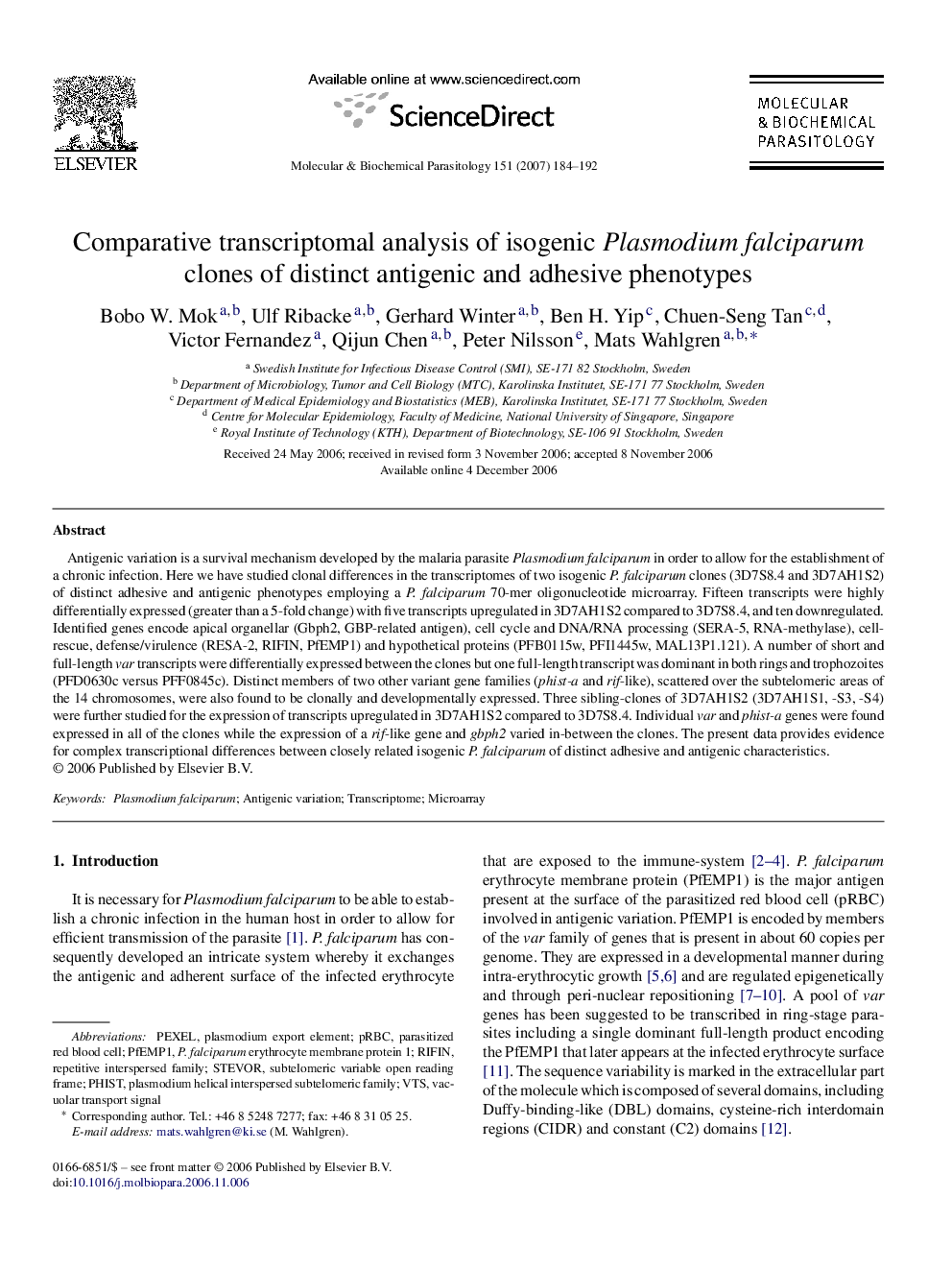| Article ID | Journal | Published Year | Pages | File Type |
|---|---|---|---|---|
| 2830292 | Molecular and Biochemical Parasitology | 2007 | 9 Pages |
Antigenic variation is a survival mechanism developed by the malaria parasite Plasmodium falciparum in order to allow for the establishment of a chronic infection. Here we have studied clonal differences in the transcriptomes of two isogenic P. falciparum clones (3D7S8.4 and 3D7AH1S2) of distinct adhesive and antigenic phenotypes employing a P. falciparum 70-mer oligonucleotide microarray. Fifteen transcripts were highly differentially expressed (greater than a 5-fold change) with five transcripts upregulated in 3D7AH1S2 compared to 3D7S8.4, and ten downregulated. Identified genes encode apical organellar (Gbph2, GBP-related antigen), cell cycle and DNA/RNA processing (SERA-5, RNA-methylase), cell-rescue, defense/virulence (RESA-2, RIFIN, PfEMP1) and hypothetical proteins (PFB0115w, PFI1445w, MAL13P1.121). A number of short and full-length var transcripts were differentially expressed between the clones but one full-length transcript was dominant in both rings and trophozoites (PFD0630c versus PFF0845c). Distinct members of two other variant gene families (phist-a and rif-like), scattered over the subtelomeric areas of the 14 chromosomes, were also found to be clonally and developmentally expressed. Three sibling-clones of 3D7AH1S2 (3D7AH1S1, -S3, -S4) were further studied for the expression of transcripts upregulated in 3D7AH1S2 compared to 3D7S8.4. Individual var and phist-a genes were found expressed in all of the clones while the expression of a rif-like gene and gbph2 varied in-between the clones. The present data provides evidence for complex transcriptional differences between closely related isogenic P. falciparum of distinct adhesive and antigenic characteristics.
